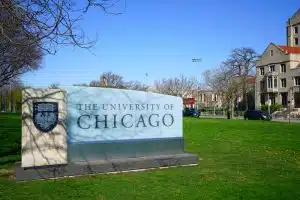Cornell vs Vassar: Which College is Right for You?
Are you a high school senior or an aspiring college student looking to continue your education at a renowned institution? Deciding on the institution that is the best fit for you can be a daunting task. Numerous factors come into play when making such an important decision; everything from tuition costs to academics and campus location can make a significant difference in your college experience. Two institutions that are often compared are Cornell vs Vassar. If you’re weighing the pros and cons of these two prestigious schools, keep reading to find out which one is the right fit for you.
Introduction to Cornell and Vassar
Cornell University is an Ivy League institution located in Ithaca, New York. Founded in 1865, it offers undergraduate and graduate programs in a broad range of subjects. Vassar College, founded in 1861, is a private liberal arts college located in Poughkeepsie, New York. It is renowned for its emphasis on the arts and humanities and is considered one of the best liberal arts colleges in the United States.
In comparing Cornell vs Vassar, both have a rich history and strong academic reputations. Cornell is known for its research programs and has produced numerous Nobel laureates, while Vassar has a long tradition of producing successful writers, artists, and scholars.
Both institutions offer a diverse and vibrant campus life, with a wide range of extracurricular activities and student organizations. Whether you are interested in pursuing a degree in the sciences, humanities, or arts, Cornell and Vassar are excellent choices for higher education.
Campus Size and Location Comparison: Cornell vs Vassar
Cornell’s campus is located in the picturesque Finger Lakes region of New York State, surrounded by natural beauty and stunning views. The campus stretches over 2,300 acres and is home to over 20,000 students.
In contrast, Vassar’s campus is much smaller, covering an area of 1,000 acres and housing just over 2,400 students. However, Vassar’s campus is located near the Hudson River and is only a short drive away from New York City.
Despite the difference in size, both Cornell and Vassar offer unique advantages in terms of location. Cornell’s rural setting provides a peaceful and serene environment for students to focus on their studies, while Vassar’s proximity to New York City offers students access to a bustling metropolis with endless opportunities for internships, cultural experiences, and entertainment. Ultimately, the choice between these two campuses will depend on individual preferences and priorities.
Curriculum and Academics Comparison: Cornell vs Vassar
Cornell and Vassar both offer a broad range of academic programs. Cornell has undergraduate and graduate schools for agriculture and life sciences, arts and sciences, engineering, and more. Vassar is known for its outstanding liberal arts curriculum. Both institutions offer a wide variety of majors and minors, ensuring that students have the ability to explore their passions and interests fully.
Additionally, Cornell has a strong emphasis on research, with numerous opportunities for students to engage in hands-on research projects alongside faculty members. Vassar, on the other hand, places a strong emphasis on critical thinking and analysis, with a focus on developing students’ writing and communication skills.
Furthermore, both institutions offer a range of study abroad programs, allowing students to gain international experience and broaden their perspectives. Cornell has partnerships with universities around the world, while Vassar has its own study abroad program in London, England, where students can take courses in a variety of subjects while immersing themselves in British culture.
Faculty and Student Ratio Comparison: Cornell vs Vassar
Cornell has a student-to-faculty ratio of 9:1, with over 3,000 faculty members. Vassar has a student-to-faculty ratio of 8:1, with just over 300 faculty members. Both institutions prioritize small, intimate classroom settings where students can form close relationships with their professors and receive personalized attention.
However, despite the difference in faculty size, Vassar has a higher percentage of professors with terminal degrees in their field, with over 90% holding a PhD or equivalent degree. Cornell, on the other hand, has a slightly lower percentage of professors with terminal degrees, with around 80% holding a PhD or equivalent degree. This indicates that Vassar places a strong emphasis on hiring highly qualified and experienced faculty members to provide students with the best possible education.
Tuition Fees and Financial Aid Options Comparison: Cornell vs Vassar
Cornell’s tuition fees average around $58,000 per year, and Vassar’s tuition fees average around $57,000 per year. Both institutions offer financial aid to eligible students to help offset these costs.
It is important to note that while the tuition fees at both Cornell and Vassar may seem high, they also offer a variety of financial aid options to help make their education more accessible. This includes need-based grants, scholarships, and work-study programs. Additionally, both institutions have dedicated financial aid offices that can assist students in navigating the application process and finding the best options for their individual needs.
Admission Requirements Comparison: Cornell vs Vassar
Admission to both Cornell and Vassar is highly competitive. Cornell has an acceptance rate of around 7.4%, while Vassar has an acceptance rate of around 20%. Both institutions require applicants to submit transcripts, test scores, essays, and letters of recommendation in their applications.
However, there are some differences in the admission requirements between the two institutions. Cornell places a greater emphasis on standardized test scores, with the average SAT score for admitted students being around 1500. Vassar, on the other hand, takes a more holistic approach to admissions and places less emphasis on test scores. Instead, they focus on a student’s overall academic performance, extracurricular activities, and personal qualities.
It’s also worth noting that both Cornell and Vassar offer need-blind admissions, meaning that a student’s financial situation is not taken into account during the admissions process. However, Vassar is known for its generous financial aid packages, with over 60% of students receiving some form of financial assistance.
Student Life and Extracurricular Activities Comparison: Cornell vs Vassar
Both Cornell and Vassar offer a wide variety of extracurricular activities, student clubs, and organizations. Cornell has over 1,000 student organizations, including sports teams, cultural organizations, and academic clubs. Vassar has over 100 student-run organizations and emphasizes Student Governance as a means of student involvement and effective personal growth.
Additionally, Cornell offers a unique program called the Outdoor Odyssey, which is a pre-orientation program that takes students on a five-day backpacking trip in the Adirondack Mountains. This program allows students to bond with their peers and experience the beauty of nature. Vassar, on the other hand, has a strong focus on community service and offers various opportunities for students to get involved in volunteer work both on and off campus.
Alumni Network and Career Opportunities Comparison
Cornell and Vassar have robust alumni networks that offer numerous career opportunities to graduates. Cornell’s alumni network includes over 250,000 alumni, many of whom hold influential positions in various industries. Vassar’s alumni network includes over 40,000 alumni and emphasizes mentorship and support for current students and graduates.
Both Cornell and Vassar offer career services to their alumni, including job postings, career counseling, and networking events. Cornell’s career services center has a dedicated team that works with alumni to help them achieve their career goals, while Vassar’s career development office offers personalized career coaching and hosts alumni panels and networking events.
Additionally, both schools have strong alumni giving programs, with Cornell’s alumni giving rate at 38% and Vassar’s at 50%, which helps to fund scholarships, research, and other initiatives that benefit current and future students.
Diversity and Inclusivity: Cornell vs Vassar
Cornell and Vassar both prioritize diversity and inclusivity on their campuses. Cornell has students from over 120 countries and emphasizes creating a safe and welcoming community for all students. Vassar is renowned for its inclusive and welcoming campus culture and emphasizes the importance of diversity in education and personal growth.
Both Cornell and Vassar have implemented various initiatives to promote diversity and inclusivity on their campuses. Cornell has a Diversity and Inclusion website that provides resources and information on events and programs related to diversity.
Vassar has a Bias Incident Response Team that addresses incidents of bias and discrimination on campus and provides support to those affected. These efforts demonstrate the commitment of both institutions to creating a truly inclusive and welcoming environment for all students.
Athletics Programs Comparison: Cornell vs Vassar
Cornell offers a wide variety of sports and Division I varsity teams, including ice hockey, football, and lacrosse. Vassar also has numerous varsity and club sports teams, including basketball, soccer, and swimming. Though athletics are not the main focus at Vassar, there are several spirit activities—including cheering in varsity games—that foster community engagement and support for teams.
Additionally, Cornell has a strong intramural sports program, offering opportunities for students to participate in sports at a recreational level. Vassar also has intramural sports, but they are not as extensive as Cornell’s program. Both schools have fitness centers and facilities available for students to use, with Cornell’s facilities being larger and more modern.
Research Opportunities and Resources Available at Cornell vs Vassar
Cornell and Vassar both offer extensive research opportunities for students. Cornell is a research-intensive institution, with millions of dollars in funding dedicated to research programs. Vassar emphasizes undergraduate research opportunities and offers numerous resources and grants for students to conduct research in a wide variety of fields.
Additionally, both colleges have state-of-the-art research facilities and equipment, including laboratories, libraries, and computer centers. Students have access to expert faculty members who are actively engaged in research and are available to mentor and guide students in their research endeavors. Furthermore, both colleges have partnerships with local and national research institutions, providing students with even more opportunities to engage in cutting-edge research projects.
Choosing the Right College: Factors to Consider
Choosing the right college can be challenging, but keeping in mind your priorities and goals can help make the decision easier. Consider factors such as academic programs, location, campus culture, financial aid options, and extracurricular activities when making your choice.
Another important factor to consider when choosing a college is the size of the student body. Some students thrive in a large, bustling environment with many opportunities to meet new people and get involved in various activities. Others prefer a smaller, more intimate setting where they can develop closer relationships with their peers and professors. Think about what type of environment you would feel most comfortable in and how it would impact your overall college experience.
Conclusion: Which College is Right for You?
When it comes to choosing between Cornell vs Vassar, there is no one-size-fits-all answer. Both institutions offer an exceptional education and an incredible array of opportunities for students. Ultimately, the right choice for you will depend on your priorities and goals. Consider all the factors discussed in this article, and make the choice that will best support your personal and academic growth. Good luck!
Want to learn more about getting into College? You’ve come to the right place. At AdmissionSight, we have over 10 years of experience guiding students through the competitive admissions process.
AdmissionSight can help you put your best foot forward when applying to college this fall. Contact us today for more information on our services.







































